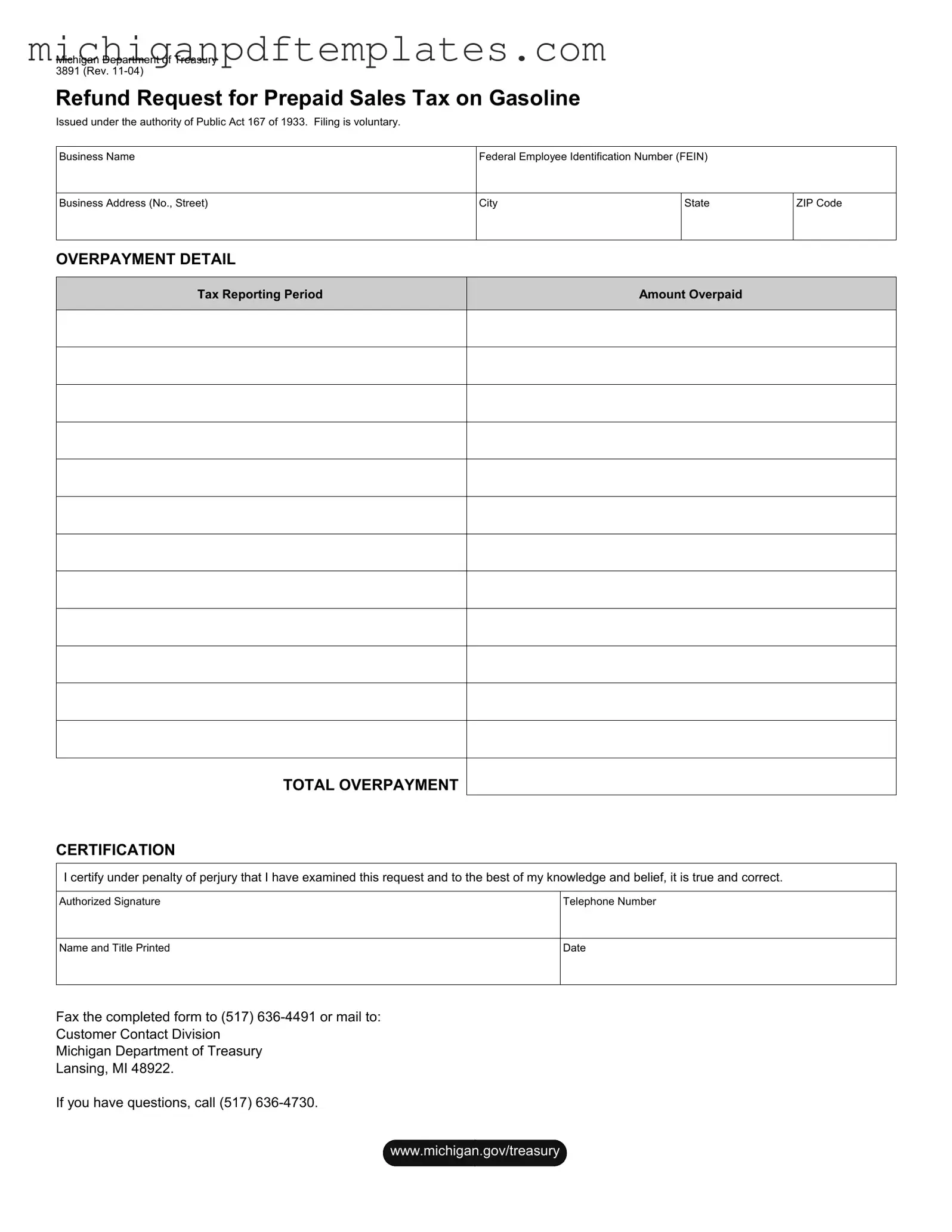Fill in Your Michigan 3891 Form
The Michigan Department of Treasury 3891 form is a Refund Request for Prepaid Sales Tax on Gasoline, designed for businesses that have overpaid this tax. This form, issued under the authority of Public Act 167 of 1933, allows businesses to reclaim funds through a voluntary filing process. To initiate your refund, fill out the form by clicking the button below.
Get Your Form Now

Fill in Your Michigan 3891 Form
Get Your Form Now

Get Your Form Now
or
▼ PDF Form
Finish this form quickly and move on
Fill in and complete Michigan 3891 online quickly.